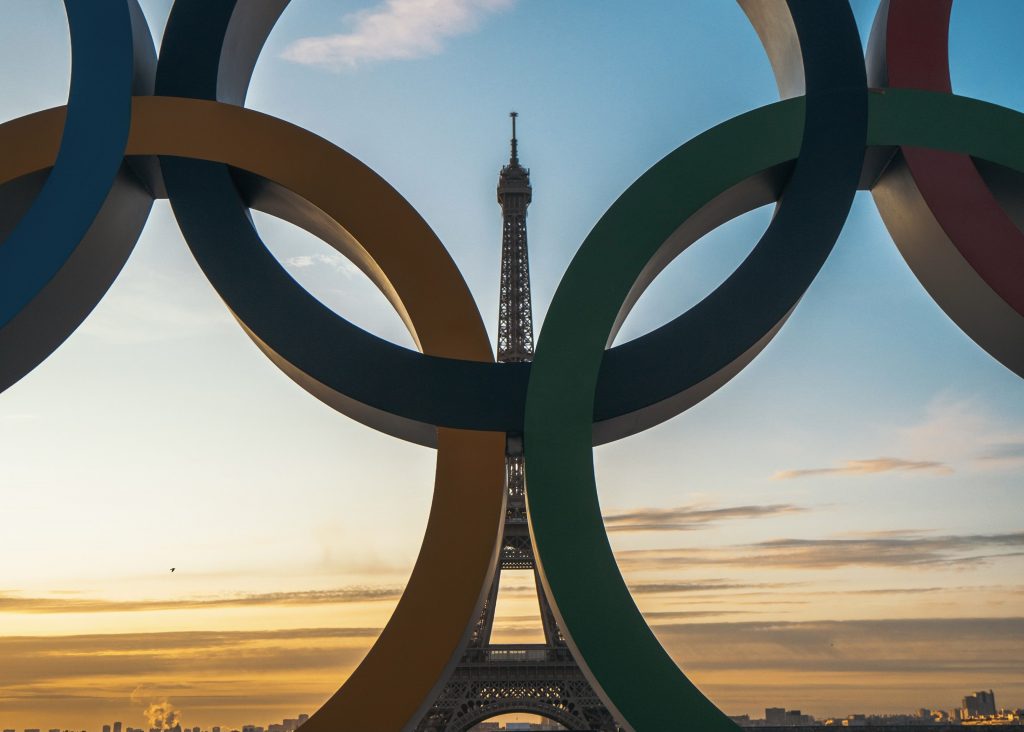By ESG Analyst Fanny Graffin

In the face of contemporary environmental and societal challenges, the realm of sports is becoming increasingly aware of its responsibilities. The 2024 Olympic and Paralympic Games in Paris stand as a testament to this commitment, striving to create a competition that allies grandeur with sustainability. This endeavor presents an exceptional occasion to enact long-term transformations in host territories and galvanize a wide-ranging public towards conscientious engagement. Paris 2024 not only fully acknowledges the impact of this event but also pioneers an innovative and audacious strategy firmly rooted in frugality.
Environmental Endeavors
Within the ambit of environmental initiatives, the Paris 2024 Games aspire to set a new standard. They embody a trajectory of ecological transition for the host cities, with a commitment to leave a positive legacy for these territories.
As early as February 2016, the Paris 2024 Bid Committee took the initiative of placing sustainable development at the heart of its priorities by creating an Environmental Excellence Committee.
The set objectives are ambitious: the Paris 2024 Games are posed to be the first to align with the Paris Climate Agreement, thereby reducing their carbon footprint by a remarkable 55% in comparison to the London 2012 Games. To realize this, Paris 2024 is adopting a pioneering approach by reimagining the very essence of the Olympic and Paralympic Games, with a keen focus on sobriety and functionality. This strategy is delineated into five key phases:
- Anticipating emissions through the establishment of clear-cut objectives and a fitting strategy.
- Avoiding emissions by focusing on a sober concept, using 95% of existing or temporary infrastructures, thereby elevating France’s cultural heritage and diminishing its carbon footprint.
- Reduce emissions by half through a suite of measures, including the provision of renewable electricity, curbing air, light, and noise pollution, committing to zero food wastage, maintaining a zero-waste objective throughout the event, and providing an ecologically conscious transport network.
- Offsetting over 100% of Games-related emissions, thereby imparting a constructive contribution to climate action. Paris 2024 has opted for the broadest scope (scope 3), encompassing indirect impacts such as spectator travel. All unavoidable emissions will be offset by projects with an environmental and social benefit.
- Mobilize as many stakeholders as possible – employees, partners, the sporting movement, but also the general public – in the face of the environmental and social challenges of our time, the world of sport is becoming aware of its responsibilities.
Societal Endeavors and Governance
In terms of society and governance, the Games are working to harness the catalytic potential of this event in stimulating economic development, narrowing socio-economic inequalities, and fostering employment.
Within the organization itself, the organization places a premium on enhancing the working conditions of its employees. The prevention of all forms of discrimination, the promotion of diversity, support for the integration of disadvantaged groups into the workforce and a commitment to employee health and safety are among the tangible measures implemented.
At a broader societal level, Paris 2024 aims to leave a virtuous social legacy, positioning itself as a prime mover for economic, social, and inclusive development. For example, the organization plans to ensure an exemplary conversion of the Olympic Village by implementing a social housing program and innovative urban planning, integrated into an ecosystem combining residences and local economic activities in collaboration with the local authorities. At the same time, Paris 2024 aims to boost the French economy by highlighting the country’s innovation and providing substantial support to small enterprises, especially those in the social economy sector, often those most attuned to grassroots solutions. Finally, in conjunction with the French government, Paris 2024 endeavours to promote sports nationwide, striving to maximize the health, well-being, education, inclusion, and equality of its citizenry.
In conclusion, the ambitious strategies put in place by Paris 2024 for the 2024 Olympic and Paralympic Games represent a real step forward in taking responsibility for the environmental and societal challenges of our time. By combining greatness and environmental responsibility, the organization aims to leave a lasting positive legacy for the host territories, by making its preparations part of a process of ecological transition. On the societal front, Paris 2024 is highlighting concrete efforts to foster economic development, reduce inequalities and promote employment. Overall, Games will leave a profound legacy, not solely in terms of sporting prowess, but also as a beacon of inspiration for future editions, exemplifying the potential of sports to catalyze positive and sustainable change for our planet and society at large.
Sources
https://www.paris2024.org/en/a-pioneering-ambition-for-the-environment/
https://www.paris2024.org/fr/methode-carbone/
https://medias.paris2024.org/uploads/2020/10/Paris2024-201001-SUS-policy-002.pdf
https://www.knowesg.com/environment/paris-2024-pioneering-a-new-era-of-green-olympics-28072023
https://olympics.com/cio/news/paris-2024-s-efforce-de-maximiser-l-impact-socio-economique-du-sport
https://www.wwf.fr/projets/paris-2024-premiers-jeux-alignes-avec-les-objectifs-de-laccord-de-paris
https://www.paris.fr/pages/des-jeux-durables-et-respectueux-de-l-environnement-19584
